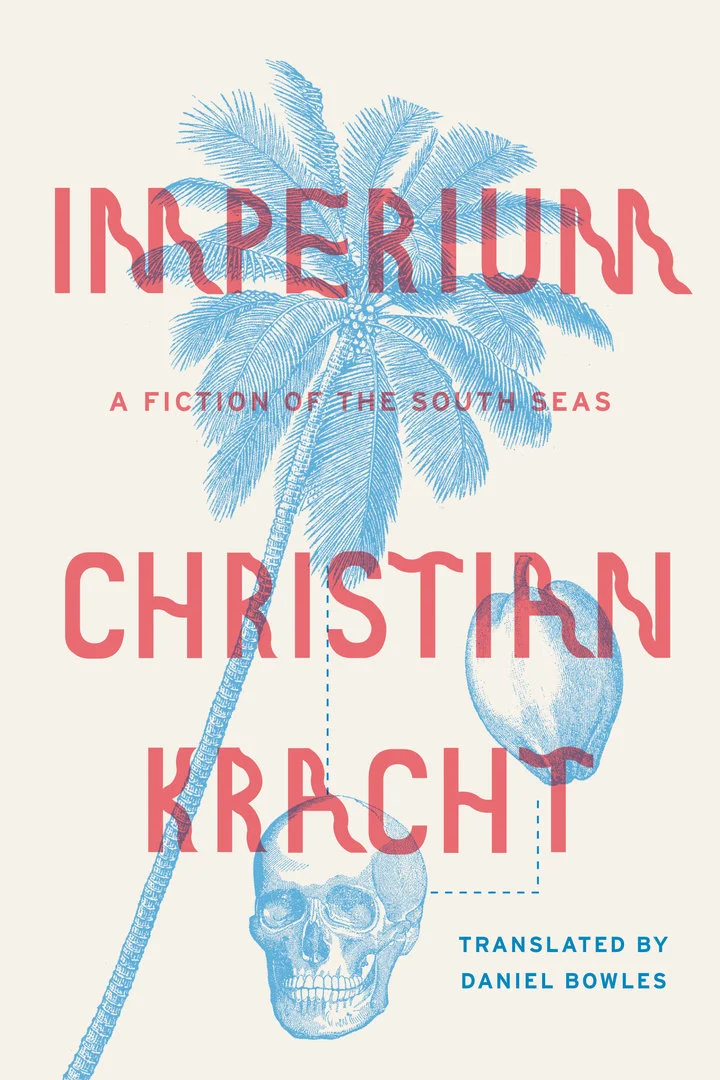Switzerland: Imperium: A Fiction of the South Seas (Christian Kracht, trans. Daniel Bowles)
Christian Kracht (b. 1966) is a Swiss journalist and novelist. His studies took him from Switzerland to Ontario, Canada, and finally to Sarah Lawrence College in the United States. He now resides in Los Angeles. The first part of his career was oriented towards journalism; in addition to working for Germany’s Der Spiegel (for whom he corresponded from India and Thailand), he also wrote for Welt am Sonntag and Frankfurter Allgemeine Zeitung. Towards the end of the 1990s, he began to collaborate with artists, participating in performance art projects, experimental art and literature, and contributing to anthologies. While living in Nepal, he published a literary magazine, Der Freund. More recently, he has been focusing more energy on longer-form writing.
Background: Settled for at least 150,000 years, the region of Switzerland was populated by a number of tribes, perhaps most notably, the Helvetii, a Celtic group. Integrated into the Roman Empire, the area blossomed with prosperous towns in the mountains. After the fall of the empire, the western area became part of the Burgundian court, while the east was settled by the Germanic tribe called the Alemanni. In the 6th century, the entire region became part of the Frankish Empire under Clovis I, where they stayed under Merovingian and Carolingian dynasties, and later, the Holy Roman Empire in 1000. The various nobles in the region formed the Old Swiss Confederacy in the 1200s, ensuring peace, and maintaining trade relations. In the 15th century, this grouping was victorious against the Hapsburgs, Charles the Bold, and in the Swabian War, resulting in independence. The Reformation led to about a century of internal conflict in the 16th century, until Switzerland’s independence was recognized under the Peace of Westphalia in 1648. The revolutionary French government captured Switzerland in 1798. The Swiss were immensely unhappy with this situation and in 1803, the Act of Mediation restored things more or less until 1815’s Congress of Vienna, which permanently recognized the country. Switzerland’s neutrality prevented it from being involved in most 20th century conflict. It is not a member of the European Union, although it became a member of the UN in 2002. It was the last Western republic to grant women the right to vote, in 1971.
Imperium is a fun recounting of the story of August Engelhardt, albeit with much elaboration and creative license. Engelhardt was an eccentric German who founded his own religious sect based on nudism and a diet solely of coconuts (cocovorism). In the novel, Engelhardt is persecuted in his native home, and so leaves Germany for German New Guinea, hoping to start a coconut plantation and attract followers. On the way, he meets an Indian man who claims to be a kindred spirit, but the man robs him, and so Engelhardt arrives at his destination without money. He is able to acquire his own small island on credit, and begins his plantation, eventually gaining some recruits…the rest you’ll have to read to find out! This novel is playful, witty, and light. While the last quarter of the novel has some darker moments, the overall affect is one of humor. Stylistically, Kracht incorporates diverse elements. At times, he is philosophical, at others, comic, and historical elements (the rise of Nazism and totalitarian ideologies) are not left aside either. I really enjoyed this book and I suspect most people would. My only caution is to those who are highly sensitive to the horrific; there are a few moments of grossness, but overall it’s a great read.






